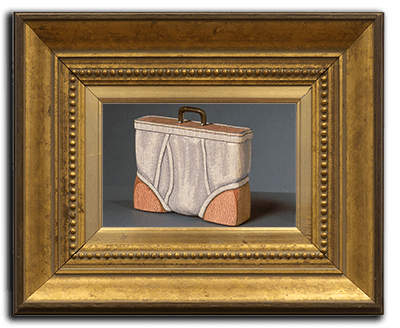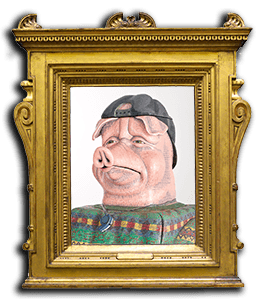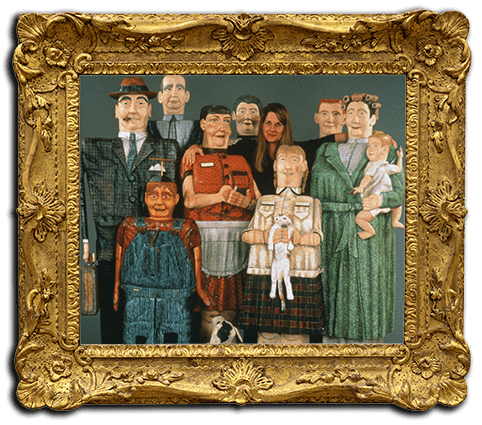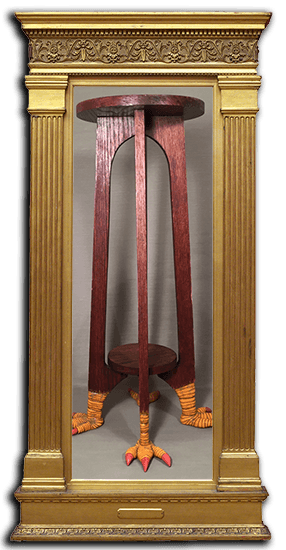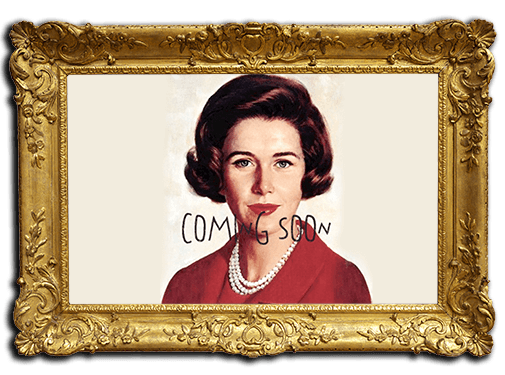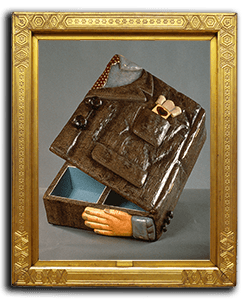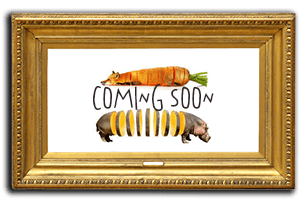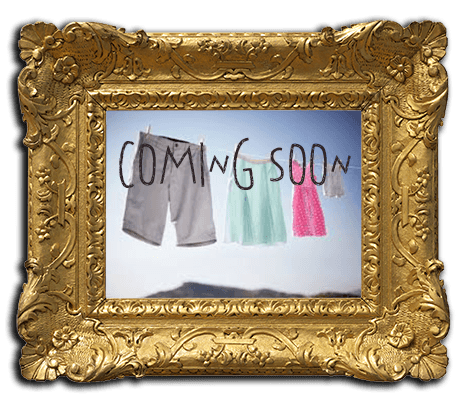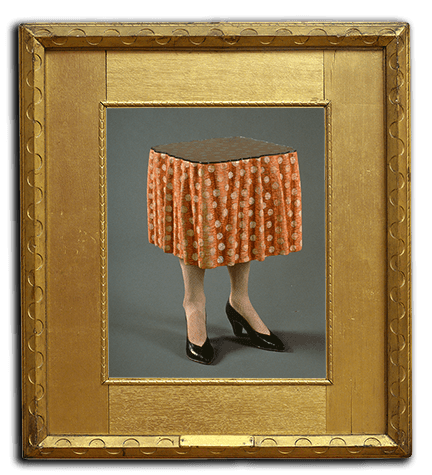Galleries of My Contemporary Folk Art Furniture
Subcategories
The Junk Drawer
![]()
This stuff doesn’t fit into any other category —some wooden things, some paintings, drawings, etc. I grew up with a “junk drawer” in the kitchen -- a place where broken parts were placed, scrap things were put, unknown items were stored -- screws, a broken scissors, unread directions, a clothespin, a rubber-band-ball. Perhaps you’ll find something interesting in The Junk Drawer; I always did!
These are available individually for purchase.
Kitschen Folk
![]()
One of my favorite contemporary artists/social critics is Ron English. I love his wit and twist on the marketing done by major corporations. Kitschen Folk, is my use (abuse?) of some corporate advertising icons -- Betty Crocker, Mrs. Butterworth, Sara Lee, Uncle Ben, and Chef Boyardi – to address some major health issues resulting from poor lifestyle choices. Each is a carved and painted human-size wooden cabinet that opens to reveal collaged information about stroke, diabetes, cancer, heart disease, or obesity.
This series is in-process.
Clothesline
![]()
Sweatshops – places around the world where workerswho toil away under severe working conditions so that people (largely Americans) can buy inexpensive clothing – is the subject of “Clothesline.” Each of these wall cabinets is a carved wooden clothing item (pants, t-shirt, camisole, etc.) hanging on a clothesline that opens to reveal information about sweatshops.
This series is underway!
Famous Coatations
![]()
Consists of mostly small tabletop containers that depict coat and jacket puns. “Dinner Jacket” is a turkey on a platter dressed in a topcoat. “Book Jacket” is a book with a suit coat as the cover. “Bathrobe” is a tub scantily clad in a robe. These are silly little boxes.
Available individually for purchase.
Auntie Q’s Oddities
![]()
Altered antique furniture pieces -- cast off chairs, tables and benches that have been whimsically transformed by the addition of a new foot, the carving of a face, or the juxtaposing of another furniture part. The end result is a newfangled antique (auntie-q) akin to some oddity that might be found in an eccentric great aunt’s attic.
I continue to create these pieces, and they are available for individual purchase.
Pfoney Containers
![]()
Small carved wooden containers depicting visual puns. For example, “Glove Compartment” is a carved wooden glove that opens to reveal a storage area; or “Briefcase” is a carved pair of men’s briefs in the shape of a briefcase complete with handle.
These pieces are available for individual purchase.
Social Studies
![]()
A series of figurative wooden cabinets that explores the context of my childhood, revealing the white female middleclass mid-western world in which I lived.
Each figure represents a stereotype from my youth – businessman, waitress, housewife and baby, teenager, grandparents, boy, and girl. The series involves a fictitious social studies assignment given in second grade: Mrs. Gardner told us to interview people in our community, take their picture, and then make a booklet.
None of these personas depict particular people, but each captures aspects of many I have known.
This series is available for purchase, as a whole or individually.
humanimals

A series of twelve anthropomorphized figures that address a variety of relationships between humans and other animals. Each wooden cabinet depicts an animal idiom (such as “pigheaded” or “harebrained”) on the outside, with text and images describing how humans typically treat that animal on the inside (such as pig factory farming or vivisection.)
Prejudice is based upon many biases, often including race, gender, nationality, or species. In each case, a line is drawn placing one group above the line and others below. Speciesism involves placing humans above and other species below. Nobel Laureate Isaac Singer calls speciesism the most extreme form of discrimination, and as unjustified as racism, sexism, or religious intolerance. I am no saint nor expert on this topic (nor in any other realm, for that matter!) I approach speciesism as an artist and a consumer, offering insights into some human/animal interfaces for you to ponder, and perhaps to act upon.
In 2022, I donated this series to PETA -- People for the Ethical Treatment of Animals. Currently they are in their office in Washington, D.C.













